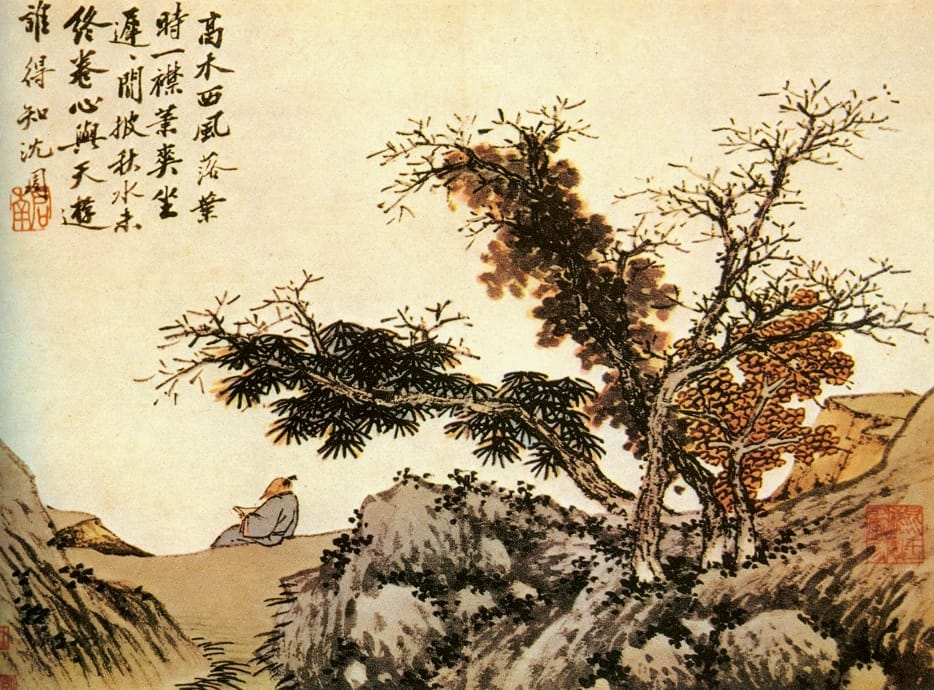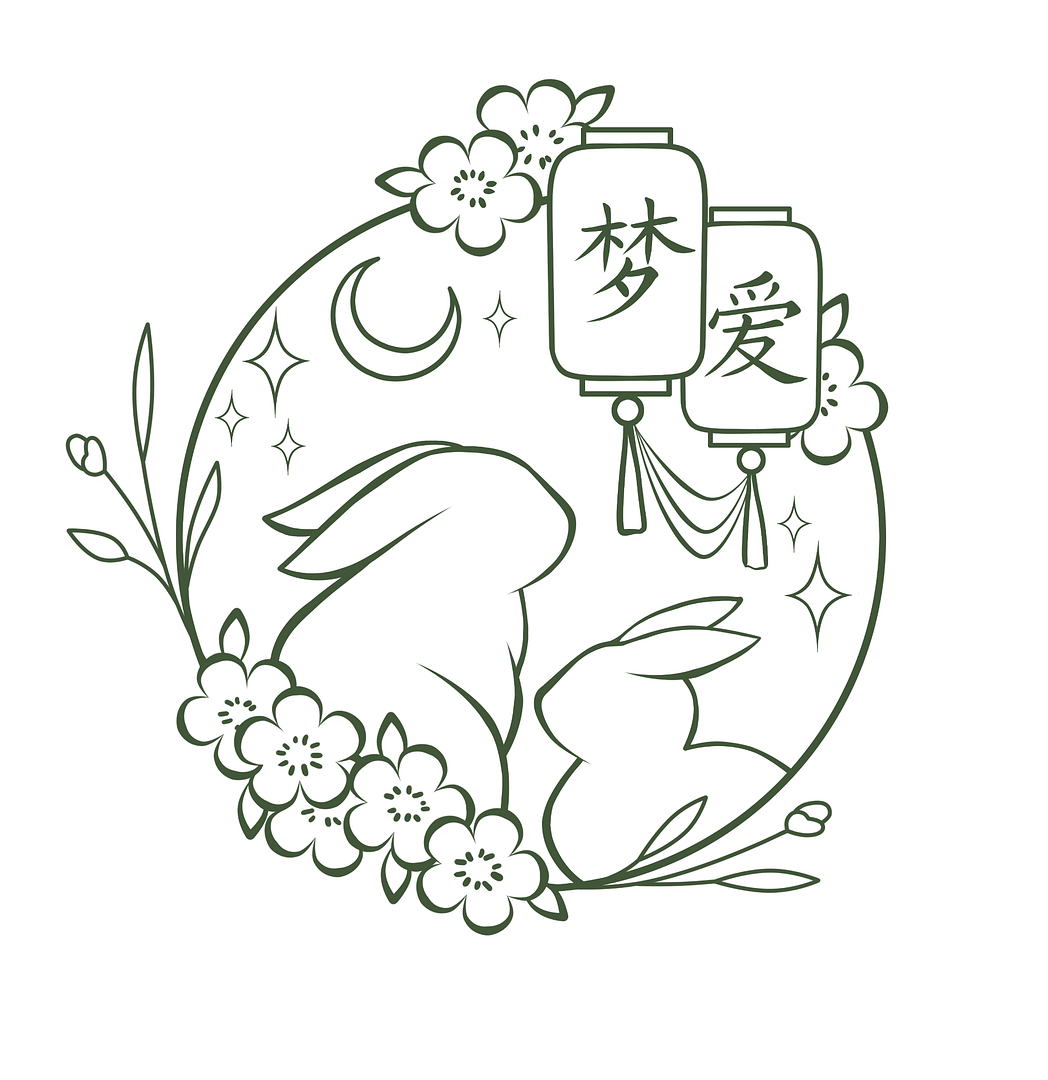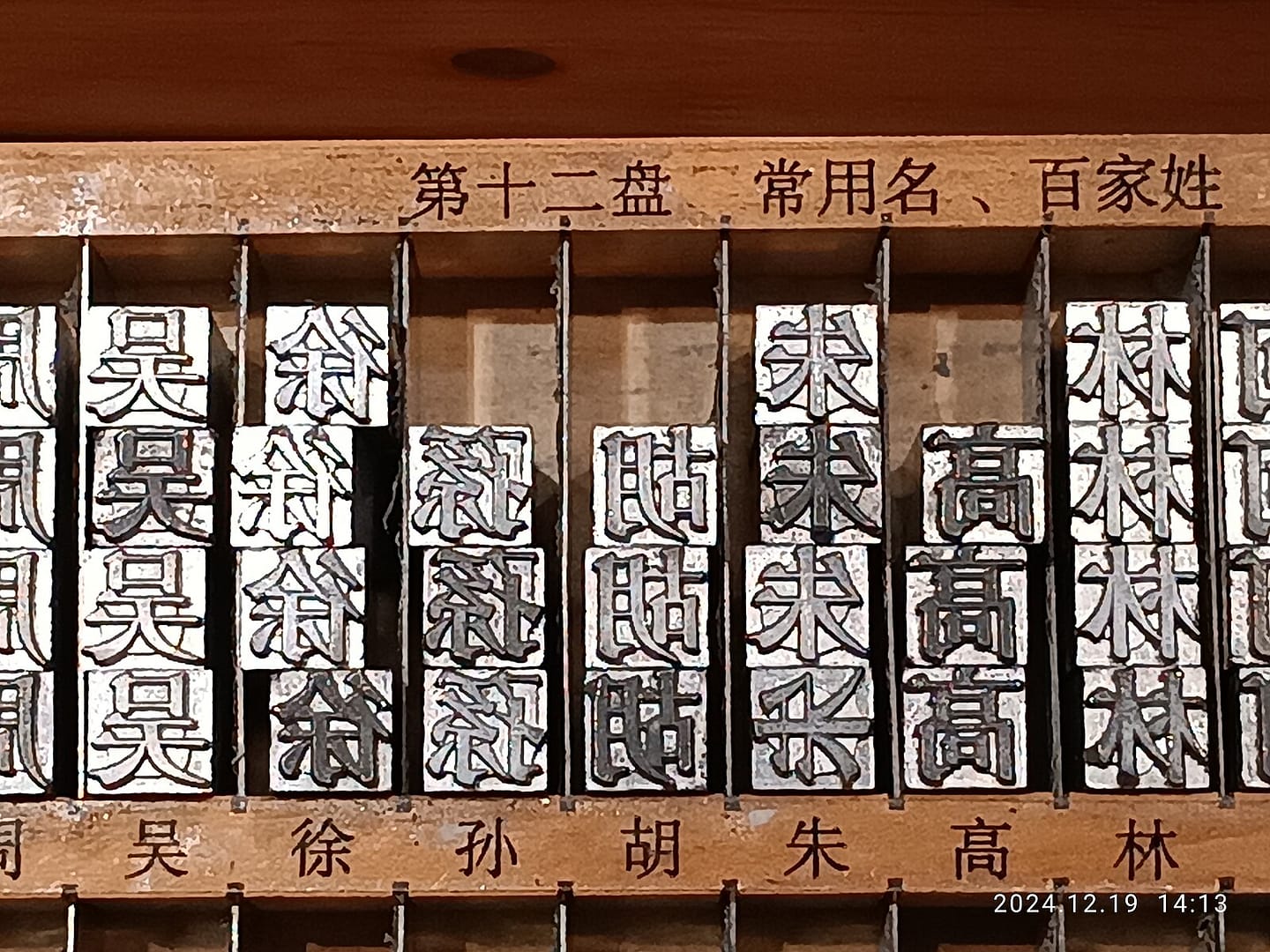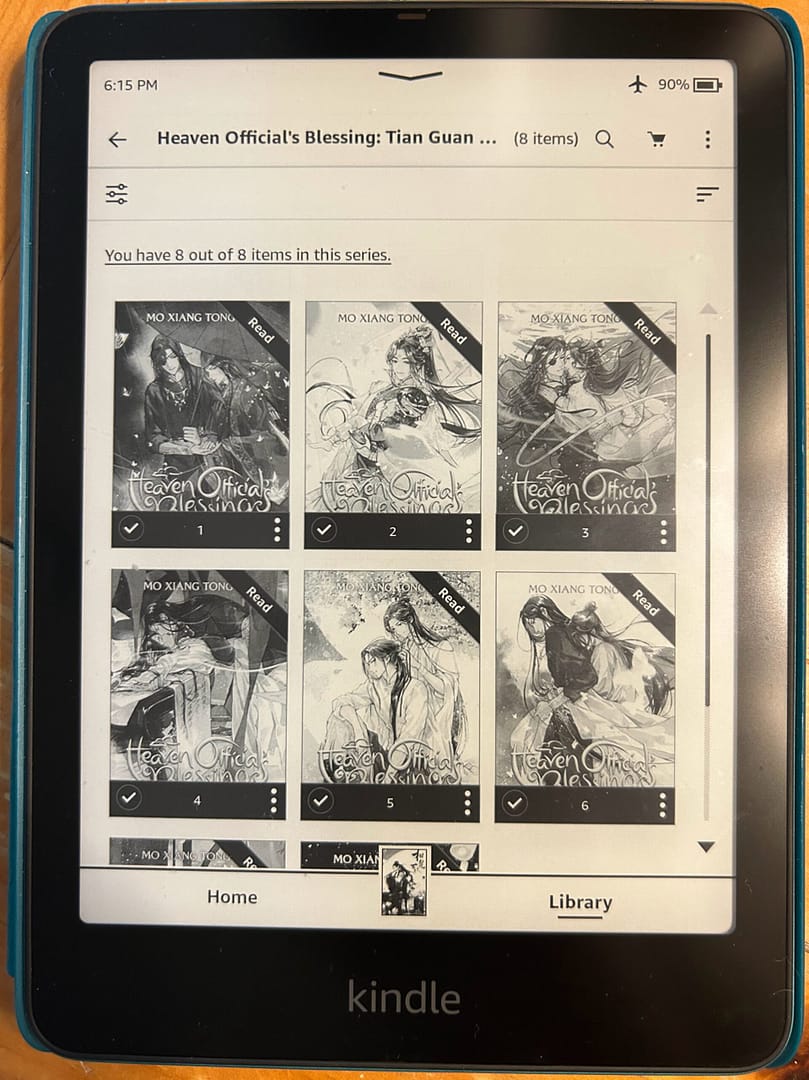Love Danmei? Learn Chinese with The Cozy Study
Introduction

Many many years ago, I was reasonably fluent in Mandarin. It was not my first language, and I always sounded like an outsider when speaking, but I could carry on conversations ranging from the mundane to the complex, read newspapers and books, and write a halfway decent essay with proper stroke order (but never beautiful calligraphy).
(art by the awesome Pu)
At that time I used Mandarin frequently, but as my life changed and I moved away from that, my language fluency atrophied. By the time I found my way to danmei, I was reduced to the reading and listening abilities of a child. How hard would it be to use danmei to build up my Mandarin abilities again? I found the raws of MDZS and tried reading them with a dictionary… and discovered I definitely needed more scaffolding than that. After all, even if I used to be able to discuss international politics in Mandarin, I never had the vocabulary to talk about Daoist cultivation or papapa scenes at all!
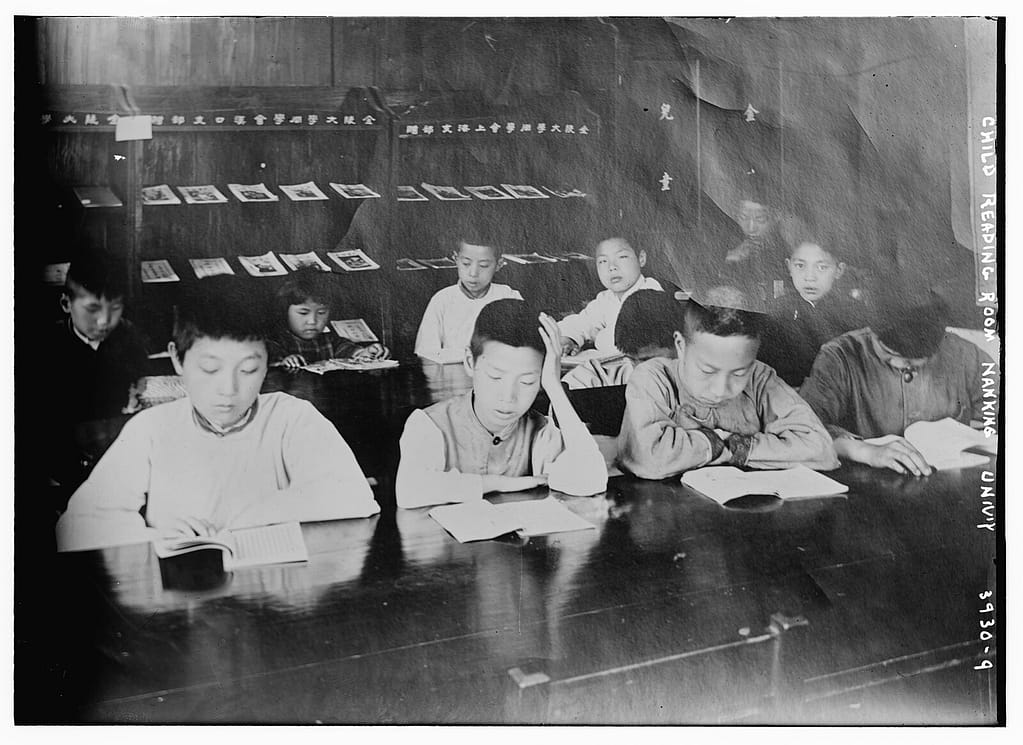
I started to look for resources, and I want to feature some of my favorites on this blog–especially the ones that are really geared towards Chinese learners who are motivated by reading danmei in the original language and context. Chinese is such a beautiful, rich, and nuanced language, and as I slowly learn new content and remember long-forgotten vocabulary, I’m excited to one day read some of these gorgeous stories fully immersed.
One of those awesome resources is The Cozy Study. I reached out to Moon, the creator of this resource, and had a great chat about why Moon created The Cozy Study and how it can be used. Let’s jump right in!
About The Cozy Study
For our readers who might not be familiar with The Cozy Study, could you tell us a bit about your blog and its mission? What kind of content can readers find on your blog?
The Cozy Study is a blog I started in November 2023. It’s where I share reviews of Chinese media, including books, TV shows and games, as well as helpful guides, tips and tricks for other Chinese second language learners.
My mission with this blog is to highlight fun, interesting, and affordable ways to learn Chinese and immerse in the language. Language learning does not have to be about textbooks, classes or travelling to a country where the language is spoken. It can all be done from the comfort of our homes.
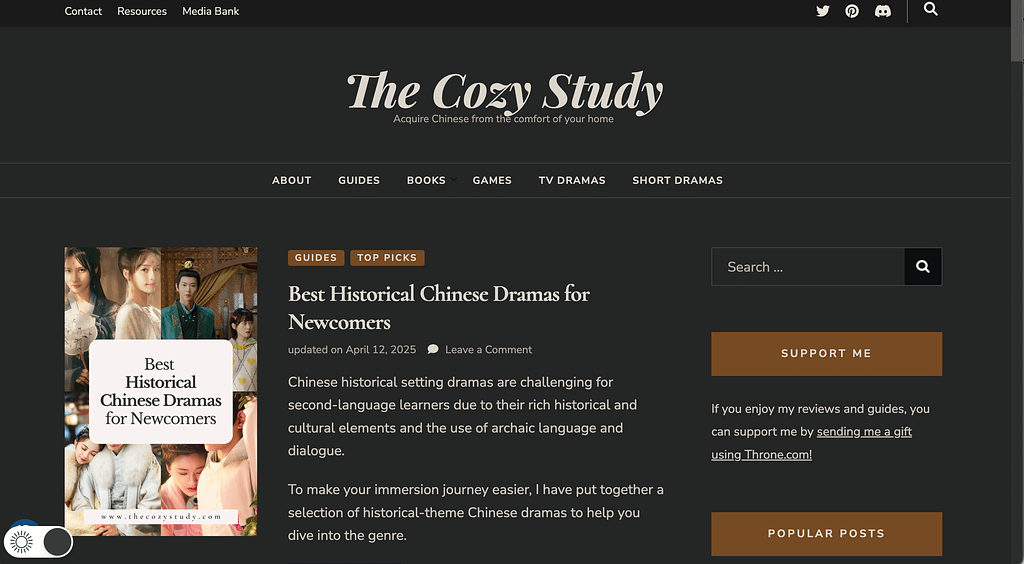
Your “About” section mentions your heritage as a Cantonese speaker. Could you explain the difference between Cantonese and Mandarin, and what led you to learn Mandarin over Cantonese?
Cantonese and Mandarin are topolects of the Chinese language; essentially, they are different varieties. The same written Chinese text can be pronounced with Mandarin or Cantonese sounds, while retaining the same meaning. But there’s a huge catch—spoken Cantonese is very different from the written language. That’s not the case for Mandarin, where the spoken and standard written form are pretty much the same.
As someone who grew up speaking Cantonese at home with my family, I have the option to improve my reading ability in Cantonese. It is something I tried for a couple of months, but the written form is so different from what I’m used to every day that it felt almost foreign. This led me to think—it feels like a foreign language, so why not learn Mandarin instead?
Learning Mandarin opened far more doors than I had originally imagined. Besides danmei webnovels, there are audiodramas, audiobooks, games and TV shows. For me, it’s the best choice I made.
Many danmei fans rely on translations, but you took a step further to learn Mandarin to explore danmei in its original form. Could you elaborate on that initial spark and what made you decide to take this step? What did you feel you were missing from the translations?
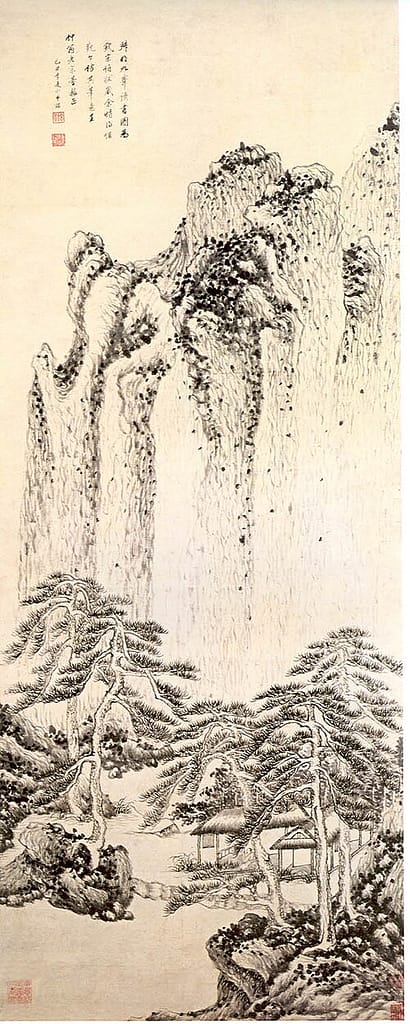
At the beginning of 2020, I was browsing Netflix and randomly discovered the Chinese TV drama, The Untamed, adapted from the famous webnovel Grandmaster of Demonic Cultivation by Mo Xiang Tong Xiu. After finishing the TV drama, I fell into a hole of reading the fan translation of all three of Mo Xiang Tong Xiu’s novels, ending with Heaven Official’s Blessing. I absolutely fell in love with Heaven Official’s Blessing, which sparked the initial “I want to learn Chinese to read the original”.
As much as I appreciated the fan translations, I felt something was missing. At the time, I couldn’t pinpoint what was missing, so it was just a gut feeling. This may have something to do with my Chinese heritage because at times, I could feel that the English phrasing was a little awkward, and sometimes I felt I could imagine what the Chinese phrase was. Learning Chinese just felt like the right choice for me.
Learning Mandarin
What are some of the biggest challenges you’ve encountered in your own journey of learning Mandarin, and how do you address these challenges for your readers on The Cozy Study?
The biggest challenge, and I feel many learners struggle with this, is finding the right resource and the right native content, which is what led me to start The Cozy Study.
There are many resources for learners and an endless amount of native content, but it isn’t always easy for a learner to discover them. Most of the time, they simply don’t know where to look, how to access them and which content is suitable for them as a learner, which was my exact struggle a few years ago.
With The Cozy Study, I hope to guide learners and make their journey smoother by showing them the resources and content they can use to achieve their goal. Hopefully, they won’t have to struggle for many months like I had to.
Do you have any advice for danmei fans who are intimidated by the prospect of learning a new language, such as Chinese? What are some initial small steps they can take? Where would you recommend they begin on The Cozy Study?
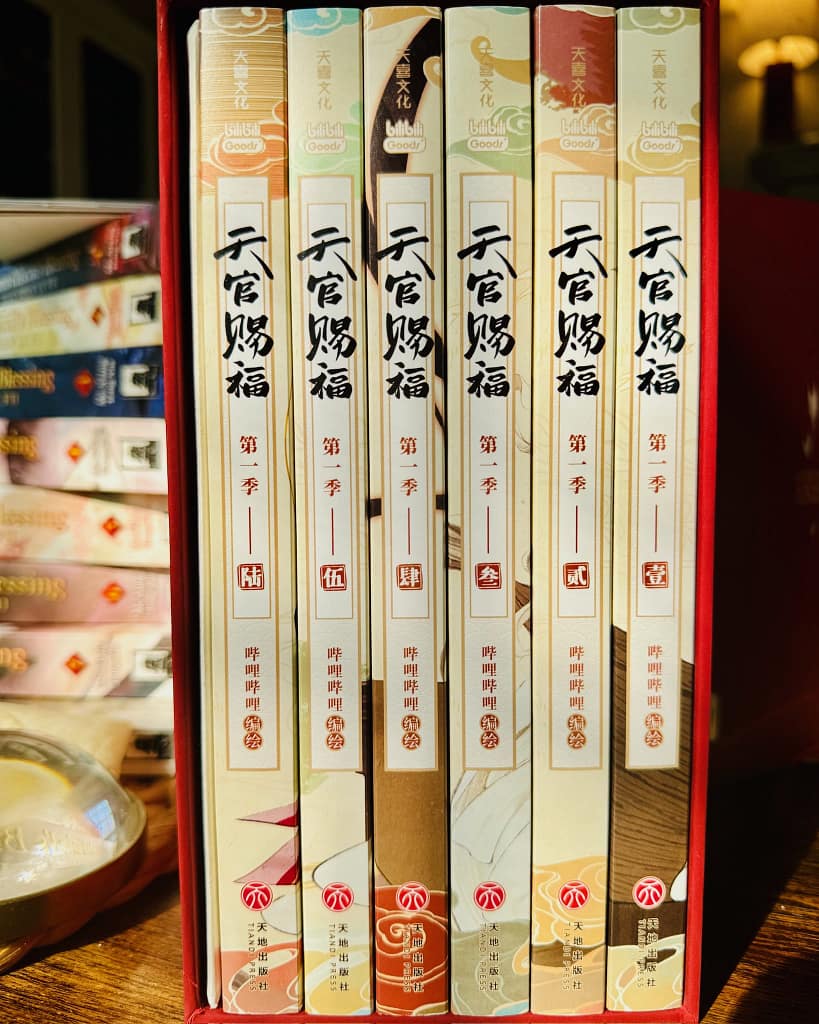
Take small steps and stay consistent – this is the best advice I can give anyone looking to pursue a journey in language learning. It’s without a doubt going to be a long journey, but having smaller goals and being consistent (i.e. 1-2 hours every day) is absolutely key.
Another tip is to find a community and others to share this journey. Having others there sharing the same struggles and goal is honestly one of the best ways to stay motivated and accountable.
For a complete beginner, scheduling 30 minutes every day to work through learner materials, such as an app or a textbook, is a great way to start. It may feel slow, but going slow and steady helps to reduce fatigue and avoid burnout. Burning out can easily lead to completely giving up!
I definitely recommend they start with The Cozy Study because I have written a blog post especially for danmei fans. It introduces the different aspects of learning Chinese, answers common questions and showcases the resources and tools they can use to start learning.
You mentioned you are part of a Discord community and that it played a part in your journey. How has this community supported you? What are some of the joys you’ve experienced being part of this community?
Shortly after I started learning Mandarin Chinese, I discovered the 看剧学汉语 Discord server via Reddit. Being part of a community with other learners, especially learners who are also danmei fans, is one of the best parts of this journey.
As I mentioned earlier, having others to share this journey is a great way to stay motivated and accountable. This was one of the main factors that kept me going all these years. I love having others around me who also share my struggles. Of course, we also share and celebrate our successes.
The 看剧学汉语 community is extremely supportive. Members constantly work together to find new resources and tools to make everyone’s life easier. They’re always willing to explain grammar and vocabulary, recommend resources and provide guidance on study methods.
Without this community and the friends I made along the way, I most likely would have given up. I can’t imagine how difficult it would be to be alone on a long journey full of ups and downs.
Reading Danmei Novels
Are there any particular danmei novels or authors that you think are especially well-suited for language learners, and why?
《一不小心和醋精结婚了》 by 一枚纽扣 (Accidentally Married a Man Full of Vinegar by Yi Mei Niukou) is a brilliant novel for language learners, and it’s one that I often recommend. It’s great because it’s a slice of life story, with simple, straightforward modern language. On top of that, the sentences and paragraphs are very short, sometimes so short that it feels like reading a series of text messages. Although the difficulty at the beginning will be steep, it doesn’t stay that way forever, as words are repeated often. This almost feels like a danmei graded reader.
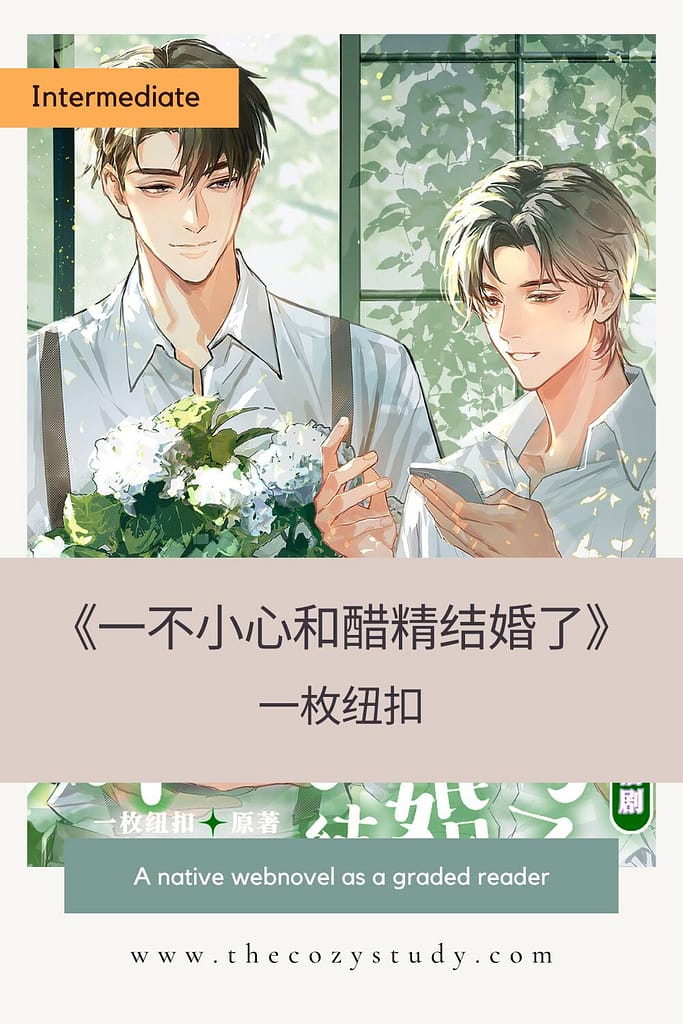
I myself haven’t read the other novels by this author, but others have told me most of her novels are around a similar difficulty. 一枚纽扣 (Yi Mei Niukou) has written many webnovels since 2020, and they are all modern setting. So, for those who want more of the same, there are plenty of options.
Have you personally found certain authors or novels more rewarding to read in the original language?
Before learning Mandarin Chinese, I had only read a few translations of novels, and out of those, I’ve only reread one of them in Chinese. Therefore, I don’t have much to compare the differences with.
However, having said that, historical setting novels are definitely more rewarding to read in Chinese than in English. Chinese is so different from English (I can only speak for English), not just as a language, but in cultural context as well. So much depth is lost in translation.
The writing style in Chinese historical setting novels is often quite formal and poetic, with a strong historical prose, which is one aspect of why they are challenging for second language learners. From what I’ve been told, the historical and poetic prose is commonly lost in translation, resulting in the translated version feeling more modern and casual.
Additionally, as a language learner, being able to read historical setting novels is also a reward in itself. In order to get to the stage where one can read historical novels with ease, it takes significantly more time and effort compared to modern setting novels, so the sense of accomplishment is much greater.

Future Plans
What are your future plans for The Cozy Study? Are there any new resources or features that your readers can look forward to?
My next big goal for The Cozy Study is to provide resources and guidance to learners who have an interest in historical setting novels. To comfortably read these types of novels, learners need to be knowledgeable in different cultural and historical elements, as well as be proficient in the language.
In order to provide the guidance, I need to gain experience and knowledge in that space, which I’m currently working on. I aim to focus on reading many historical setting novels, so that I can someday provide learners a good reading list to follow. Hopefully, it’ll be very soon, so watch this space!
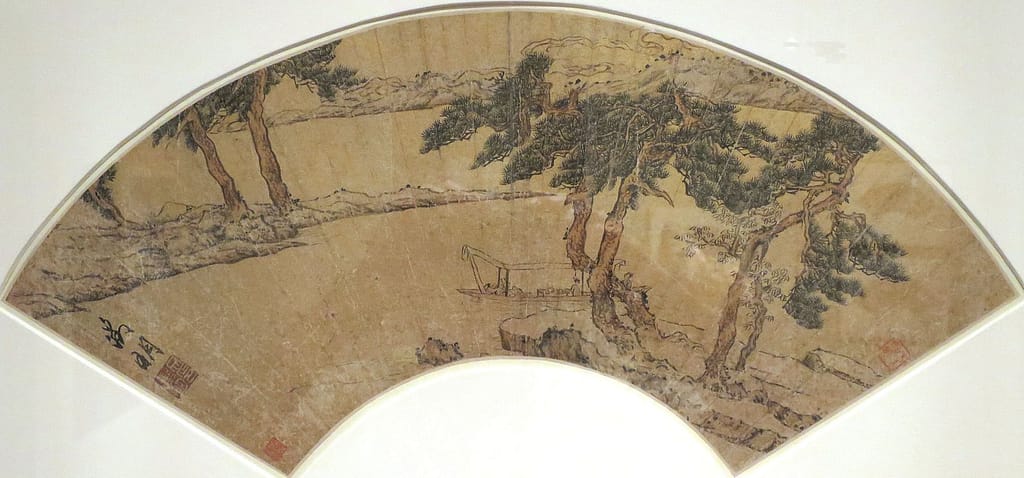
What has been the most rewarding aspect of running The Cozy Study and connecting with other danmei fans and language learners?
Making friends, finding like-minded others who share the same interests, and sharing our journey are by far the most rewarding aspects of running The Cozy Study and being part of a community.
Seeing other learners discover new resources, new native content and new ways to improve their language journey is also extremely rewarding, whether that is through them discovering a blog post on The Cozy Study, from information they find on the 看剧学汉语 Discord server or from guidance with other members.
